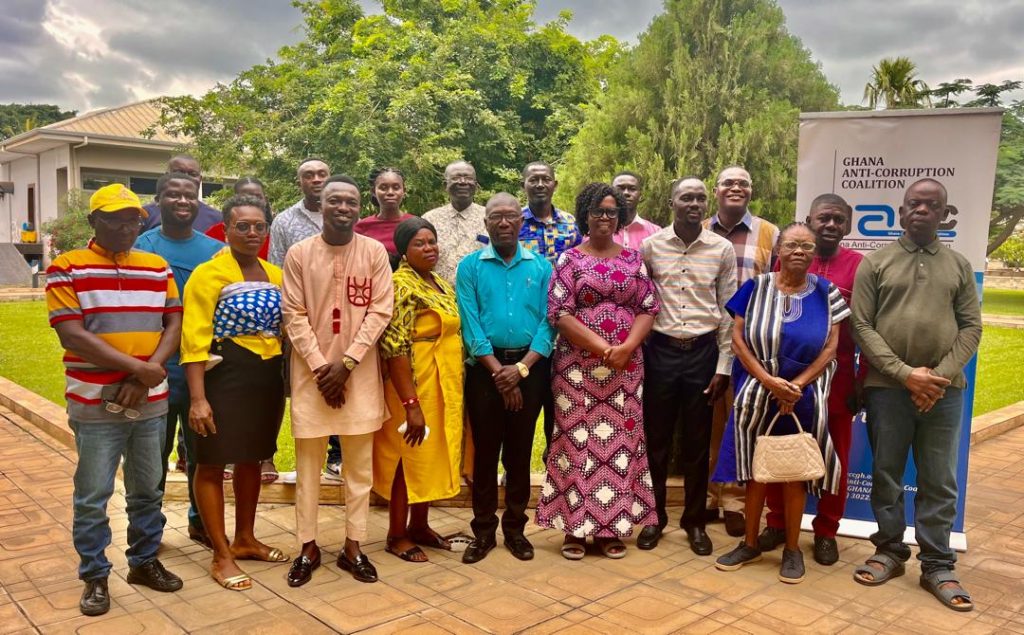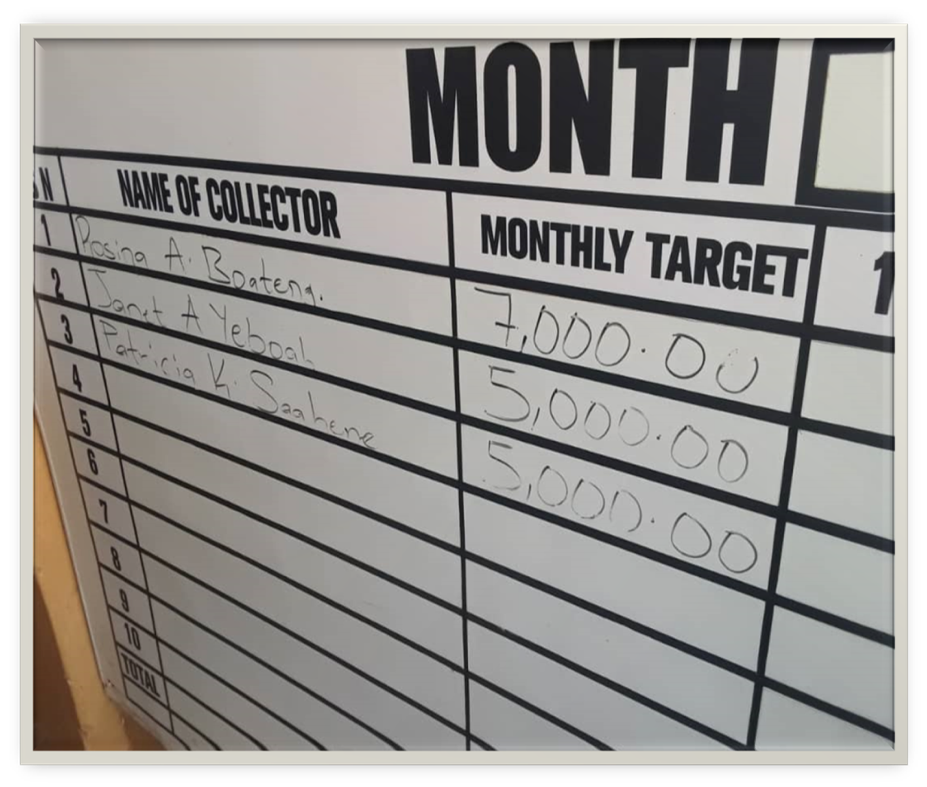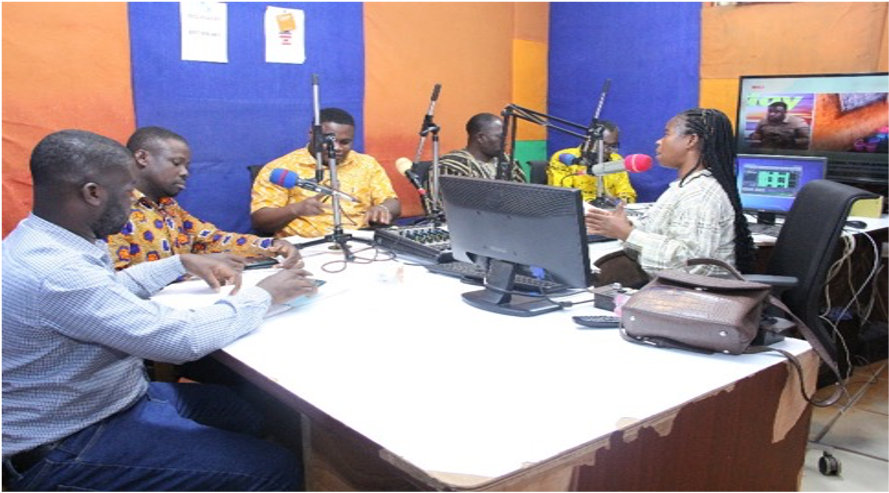Albert Oppong-Ansah
Accra, Oct. 14, GNA – The Local Accountability Network (LANet), a district level Citizen group initiative of the Ghana Anti-Corruption Coalition (GACC), is making significant strides in promoting financial accountability and transparency within Ghana’s local assemblies.
Through its strategic engagement with local authorities and the support of the Ghana Anti-Corruption Coalition (GACC), LANet has helped to retrieve nearly seven million Ghana Cedis from 13 districts, stemming from financial infractions flagged in the 2022 Auditor General’s report.
These infractions—ranging from unauthorized expenditures to payroll fraud—had long gone unchecked, contributing to financial leakages and hindering development.
However, LANet’s efforts, supported by constant monitoring, is reversing this trend.
The Mfantseman Municipal Assembly in the Central Region, for instance, retrieved GH¢21,095.60 out of financial infractions that amounted to GH¢24,251.60, while the Ellembelle assembly recovered a total of GH¢29,000 being unearned salaries.

The Faces Behind the Movement
Middle-aged Comfort Tsaku, who leads the LANet at Kadjebi in Northern Volta is upbeat about the contribution the group is making through constant monitoring and visits to the assemblies to ascertain funds recovery progress.
“In years past, not much effort was invested in implementing the AG’s recommendations. Working together with my colleagues made up of prominent persons, the Kadjebi assembly has recovered GH¢3,489 in 2022,” she says.
One of the suggestions the group offered to local authorities has contributed to sealing revenue collection leakage.
“Revenue officers now collect levies and fees via mobile money and not cash. Cash collection in the past resulted in shortage, ending that mode has increased revenue nearly half,” an Official who does not want to be identified at the Kadjebi Assembly, says.
He testifies that the yet-to-be-published AG’s report did not cite the assembly in any financial malfeasance, attributing it to proactive and stringent measures undertaken by authorities to ensure a sound public financial management system.
“Their role is important so we invite them during occasions and involve them as much as possible,” he says.
At Mfantseman Municipal Assembly, the LANet, besides following funds recovery, played a significant role in operationalising the Nsanfo health facility which was not in use due to the supply of utility services, including electricity and water.

Role of LANet
Armed with collated citations from the AG’s audit recommendation report, members of the LANet, mainly concerned citizens, were mobilised and trained by the GACC under the Hewlett Foundation to increase local governance participation.
Present in 34 districts within 13 of the country’s 16 administrative regions, their activities include, monitoring and making sure that contract awarding processes are followed and ensuring that an improved procedure of engaging auctioneers is established.
“They undertook these activities through visitations, holding periodic dialogue with officials of the assembly where challenges and solutions are discussed,” says Mrs Beauty Emefa Narteh, the Executive Secretary of the GACC.
The LANet groups, she notes, harnessed the power of the media by participating in a series of media engagements to discuss implementation of audit recommendations, National Anti-Corruption Action Plan and related issues.
Hopeful future

For Mrs Narteh, the gains made indicate that financial infractions can be nipped in the bud.
“If money that was supposed to be used to undertake a project two or three years ago, was embezzled and it is retrieved this year, we will lose the value of that money. So, we should be preventing malfeasance from happening in the first place,” she says.
According to a leading local governance expert, Dr. Eric Oduro Osae, the monitoring done by LANet and training journalists to put spotlight on the citation and discuss the issues on radio is an innovative approach worth commending.
“But we also realise the media can do so much if empowered. For instance, if it’s procurement, who are those behind? Journalists could go behind to reveal the identity of persons contracts have been awarded to and if they are politically exposed, or not,” he says.

Dr Osae, who is the Director-General of the Internal Audit Agency, proposes that the results should be fine-tuned, perfected, validated and handed over to the local government as a blueprint to be adopted by local government and mainstreamed into the national system to support recovery and prevent infractions.
“Look at the quantum that has been retrieved in this short period. If we are able to replicate it in the other 240 districts you can imagine how much funds we can mobilise.
“These wins are a reminder that change is possible. It’s not easy,” she says. “But I believe in the power of people to make a difference. We just have to keep fighting.”
As the movement to monitor local assemblies continues to grow, more communities are beginning to reclaim control over their public finances.
In doing so, they are not only protecting their resources but also strengthening democracy itself. After all, when citizens hold their leaders accountable, everyone wins.
GNA